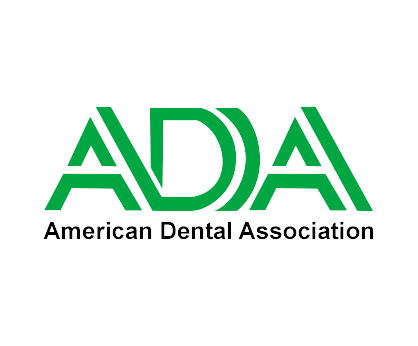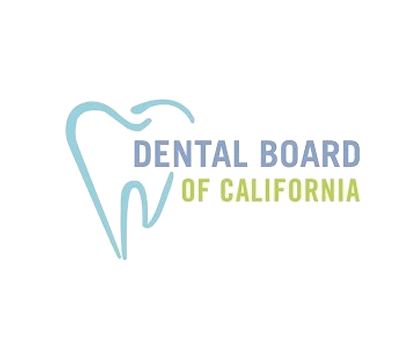Excellent dental hygiene doesn’t just affect you; it can affect those around you too.
Morning breath is meant to stay stuck only to that small window of time when you’ve just woken up and have maybe had breakfast. By the time you’ve headed off to work, you should have already said good morning to your toothbrush and dental floss and said goodbye to plaque and bacteria. However, even if you’re diligent in keeping track of your dental hygiene routine, not everyone else is.
When a coworker, friend, or loved one doesn’t brush their teeth twice a day—once in the morning and once at night— it can be easy to tell. The tell-tale sign is terrible breath as plaque collects on the teeth and oral bacteria on the tongue. Chronic bad breath, or halitosis, is often a sign of severe infection, either of the gums or the teeth. And sometimes, the plaque can be so thick that it’s visible when you’re talking to them.
So how do you convince someone to brush their teeth more often, especially in the morning?
Be Honest, But Be Nice
Asking a friend, family member, or coworker to take better care of their dental hygiene can be awkward, uncomfortable, and embarrassing. It may even seem mean, especially if it’s someone you love. However, putting off this conversation will only hurt everyone more in the long run. While you may have been facing stinky breath, they may currently be fighting off tooth pain and oral diseases like cavities and gingivitis. Eventually, you should rip the band-aid off—but make sure to be kind and understanding.
Understandably, the other person might become defensive, even if it’s a loved one who trusts your judgment. After all, this isn’t the most pleasant news you want to hear, and they might not believe that oral hygiene is so important. However, even if they try to jump down your throat, you should stay calm and gentle in your approach. And don’t make this about you. Remember that picking up their dental hygiene routine is for their benefit.
Bring Up The Facts
If speaking frankly to them isn’t enough, don’t be afraid to bring out the facts and prove your point. One way to do this is to take pictures as evidence. Think of it like when you have food stuck in your teeth, and you don’t notice until you see your smile in the mirror. Wouldn’t you have wanted someone to tell you or hand you a hand mirror to fix it before you had to find out on your own? By showing your friend, coworker, or loved one pictures of their smiles, they can see just how the world sees their not-so-pearly whites.
Pictures don’t always tell the whole story. People can shrug off halitosis and plaque-covered teeth as a fluke or relatively unimportant. However, the facts can speak for themselves. Sure lousy breath and plaque are annoying to deal with, but they can potentially ruin a person’s smile if left unchecked. Poor oral hygiene is the leading cause of dental health problems like tooth decay and gum disease. As plaque, bacteria, and tartar collect and build upon the teeth, they infect and eventually start destroying the surrounding tissues.
You can encourage others to start brushing more diligently by having them understand the harm they’re doing to their smiles. Here are some quick facts and statistics that you can bring up:
Two-thirds of adults go about their days with plaque visible on their teeth
26% of adults in America suffer from untreated tooth decay, and almost half (46%) over the age of 30 have some form of gum disease
About 100% of adults have had at least one cavity, with the average person having between four and ten in their lifetime
A third of adults have lost at least one permanent tooth (excluding wisdom teeth) by age 40; by age 64, this number goes up to 66%
30% of people aged 65 to 74 have none of their original teeth left
Bring In The Cavalry
Sometimes your friend or loved one won’t listen to you or the facts. After all, it can be embarrassing to learn others have noticed their chronic bad breath or yellowing teeth. However, it can be much harder for others to ignore that their lapsed dental hygiene is a problem when a dental professional tells them. After all, we see a sharp uptick in patients brushing and flossing in the week before their teeth cleaning appointment with a dental hygienist.
Dentists and hygienists know all there is to know about dental health. By having your friend or family member visit us, we can tell them where exactly their current dental health track is going. We can also perform an in-depth assessment to see if bad oral habits have already made their mark. If they have, then we can plan how to get their smile back in shape and give them valuable advice to improve their dental health moving forward.
The Importance Of Excellent Dental Hygiene
What Happens If Periodontal Disease Goes Untreated?
We all know that untreated tooth decay leads to cavities and eventual tooth loss, but what about periodontal disease? When gum disease first appears, it’s relatively mild and easy for people to ignore. With gingivitis, people only experience swollen, red, and tender gums and some gingival bleeding as the soft tissues are only irritated and inflamed. The infection from plaque and bacteria buildup hasn’t yet damaged the gums permanently. However, if those habits continue to fall to the wayside, gum disease will only continue to worsen.
When periodontitis develops, brushing and flossing won’t be enough. A periodontist is needed to contain the infection. During this more advanced stage, the gums pull away from the teeth and create deep pockets for more bacteria and plaque to collect. The gums, connective ligaments, and jawbone supporting the teeth begin deteriorating. As these tissues are destroyed, they usually come with the following symptoms:
Receding gum line
Halitosis
Sensitivity
Gum and tooth pain when chewing
Loose and shifting teeth
Change in bite and dentures not fitting well
Pus between the teeth and gums
Eventually, leaving gum disease to its own devices will weaken the teeth’s supports enough that the teeth become unmoored and fall out. The bacteria and infection won’t end with tooth loss. Instead, they will spread to the rest of your friend or family member’s smile, causing a cascading domino effect that can potentially ruin their entire smile. The periodontal disease can be stopped before it reaches this point, but it will come at the cost of extracting their teeth before they come out on their own.
Can Dental Problems Cause Health Issues?
Some people are surprised to hear that their oral hygiene can have a noticeable effect on their general health. However, our smiles are only a small part of a larger whole, with everything connected. When oral bacteria is left unchecked, it isn’t limited to spreading throughout the mouth. It can enter the bloodstream, allowing it to reach the rest of the body. The following conditions have been linked to patients with poor oral health and a history of dental problems:
Heart disease
Endocarditis
Stroke
Dementia (and possibly Alzheimer’s)
Diabetes
Pneumonia
Pregnancy and birth complications
Cancer
Kidney disease
Rheumatoid arthritis
Practicing Proper Dental Care
When it comes to taking care of your smile, technique is just as important as frequency. While someone may brush their teeth twice a day and floss them daily, doing these tasks wrong can still lead to a toothache, cavity, or gum disease.
Brushing
Sometimes people have bad breath and worse dental health because they’re not brushing their teeth long enough. Giving your teeth a quick pass with a toothbrush isn’t enough to remove hours-worth of bacteria and plaque buildup on the teeth. How long should you brush your teeth? Studies show that two minutes is the right amount of time needed to thoroughly brush each tooth and surface. Otherwise, spots and plaque can be missed, giving oral bacteria more time to sit and fester on the teeth and against the gums.
When brushing, you should make sure to use circular strokes rather than just up and down or side-to-side. With circular motions, you not only have a better opportunity to cover the whole tooth, but the bristles can reach under the gums to gently remove plaque too.
Flossing
Flossing is just as crucial to oral health as brushing your teeth. When you floss, be sure to thread the floss between the gums and teeth using C motions. This allows you to reach deep and clear the roots of trapped plaque and better prevent periodontal disease. However, you should make sure not to floss only once between teeth. To properly look after your gingival health, you must floss on either side of the gum to reach each tooth’s roots.























